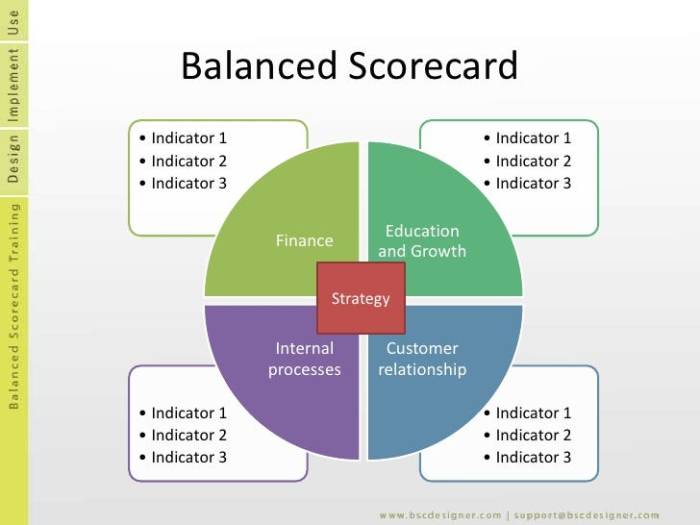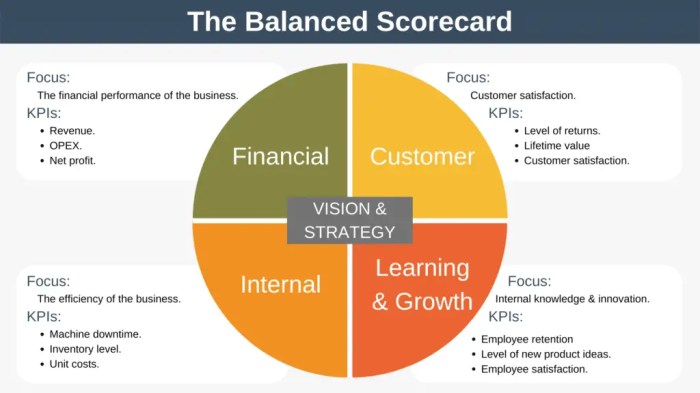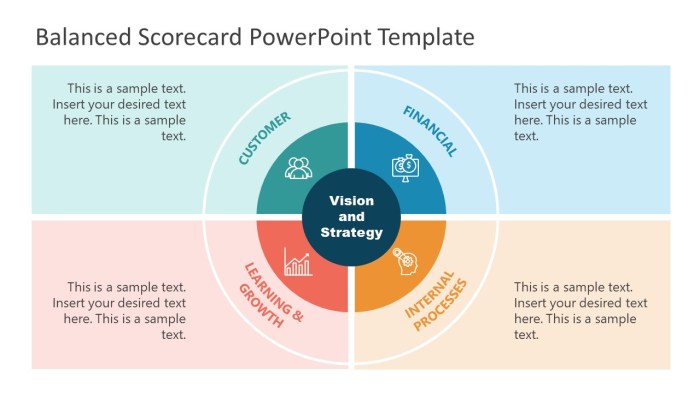The balanced scorecard check all that apply – The Balanced Scorecard (BSC) is a comprehensive performance measurement tool that enables organizations to evaluate their success across multiple perspectives, including financial, customer, internal process, and learning and growth. This guide provides a thorough examination of the BSC, covering its benefits, implementation, challenges, and best practices.
By utilizing the BSC, organizations can gain a holistic view of their performance, identify areas for improvement, and make informed decisions that drive sustainable growth and success.
Definition of the Balanced Scorecard: The Balanced Scorecard Check All That Apply

The Balanced Scorecard (BSC) is a strategic performance management tool that provides a comprehensive view of an organization’s performance by measuring results across four perspectives: financial, customer, internal process, and learning and growth.
The BSC helps organizations to:
- Translate their strategic vision into measurable objectives
- Align their goals and initiatives
- Track their progress and make informed decisions
Benefits of Using the Balanced Scorecard
Organizations that implement the BSC can experience a number of benefits, including:
- Improved financial performance
- Increased customer satisfaction
- Enhanced operational efficiency
- Greater employee engagement
- Improved decision-making
Implementing the Balanced Scorecard, The balanced scorecard check all that apply
Implementing the BSC involves the following steps:
- Develop a strategic vision and mission statement
- Identify key performance indicators (KPIs) for each perspective
- Set targets for each KPI
- Collect data and track progress
- Make adjustments as needed
Challenges of Using the Balanced Scorecard
Organizations may face a number of challenges when using the BSC, including:
- Difficulty in identifying the right KPIs
- Lack of data or poor data quality
- Resistance to change
- Time and resource constraints
To overcome these challenges, organizations should:
- Involve stakeholders in the development of the BSC
- Use a data-driven approach
- Communicate the BSC clearly and effectively
- Provide training and support to users
Question Bank
What are the key benefits of using the Balanced Scorecard?
The BSC offers numerous benefits, including improved performance, enhanced decision-making, better alignment of goals, increased employee engagement, and a more comprehensive view of organizational success.
What are some common challenges associated with implementing the Balanced Scorecard?
Organizations may encounter challenges such as selecting appropriate metrics, obtaining buy-in from stakeholders, ensuring data accuracy, and maintaining the BSC over time. However, with careful planning and execution, these challenges can be overcome.
How can the Balanced Scorecard be used for strategic planning?
The BSC can be integrated into strategic planning processes by aligning organizational goals and objectives with specific metrics and targets. This enables organizations to translate their strategic vision into actionable steps and monitor progress towards achieving their desired outcomes.

